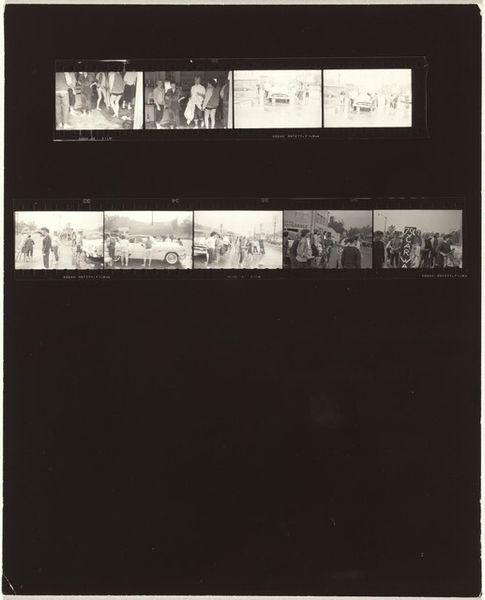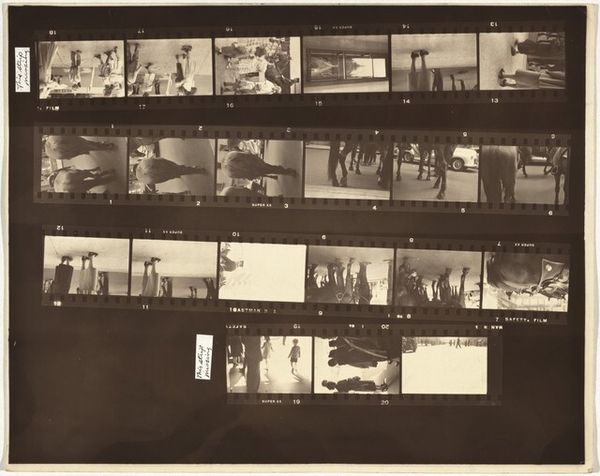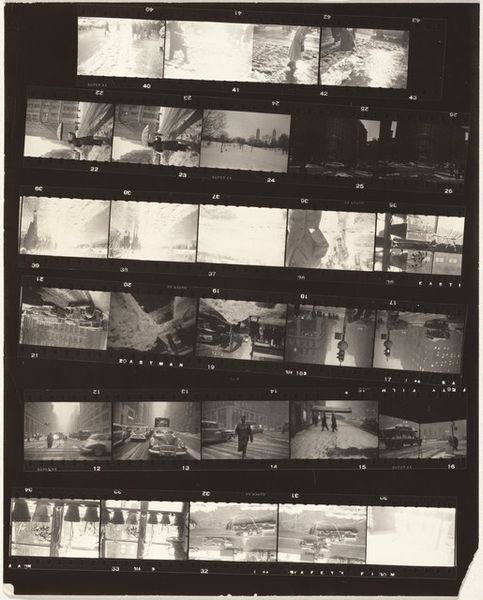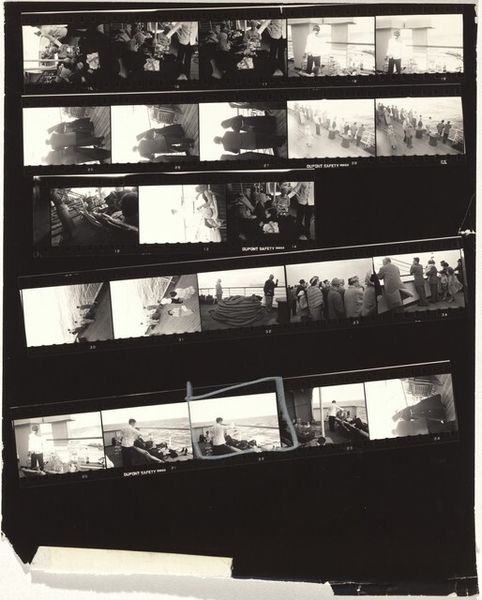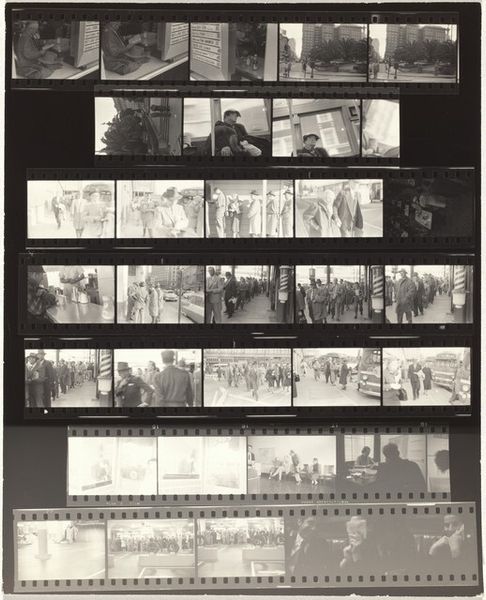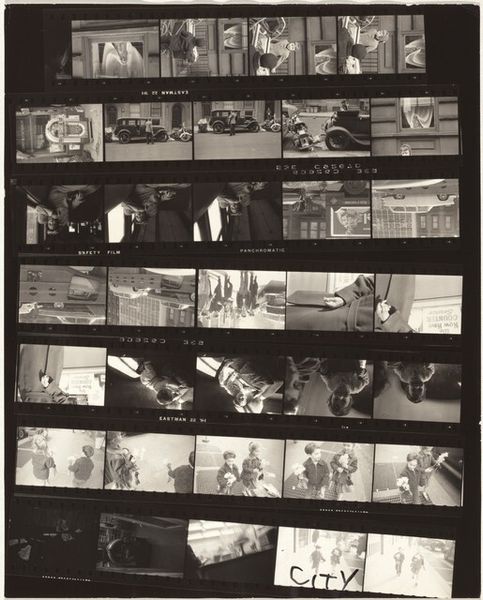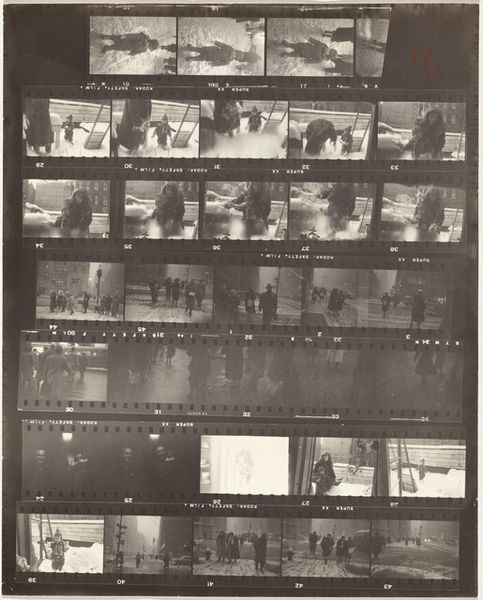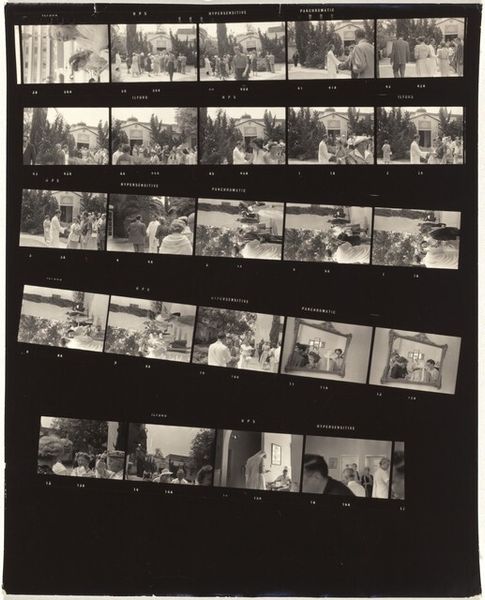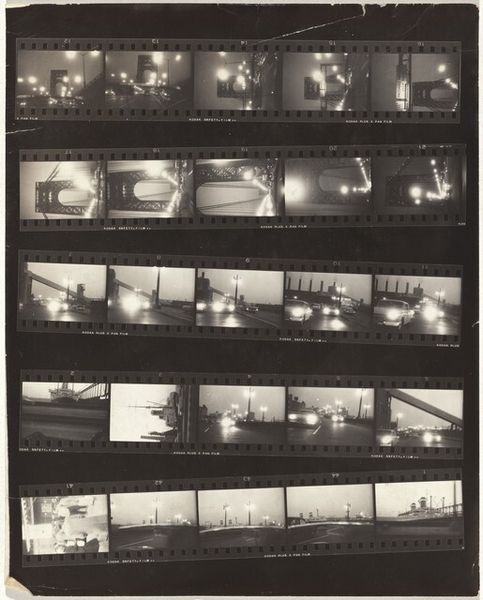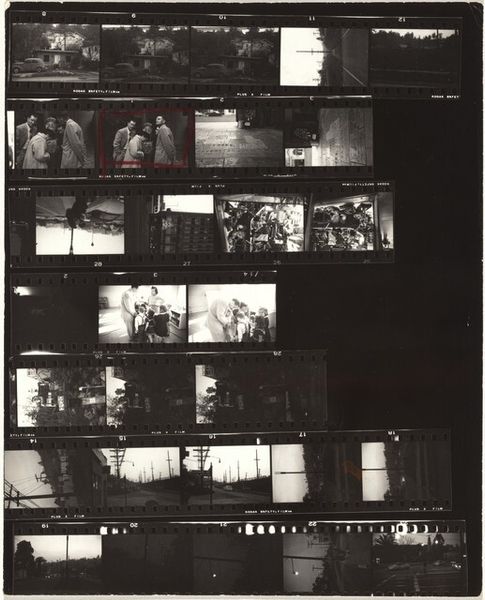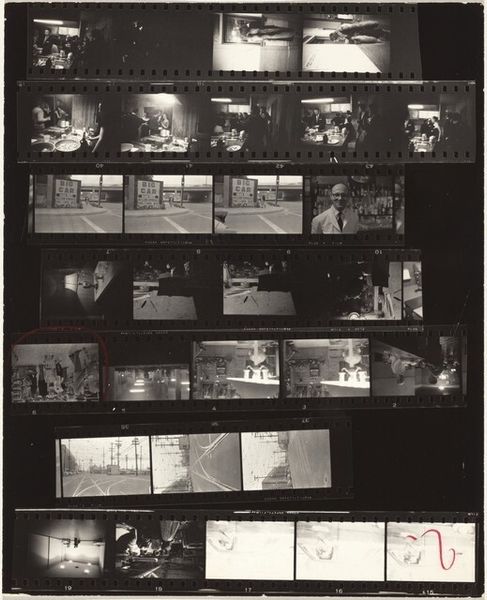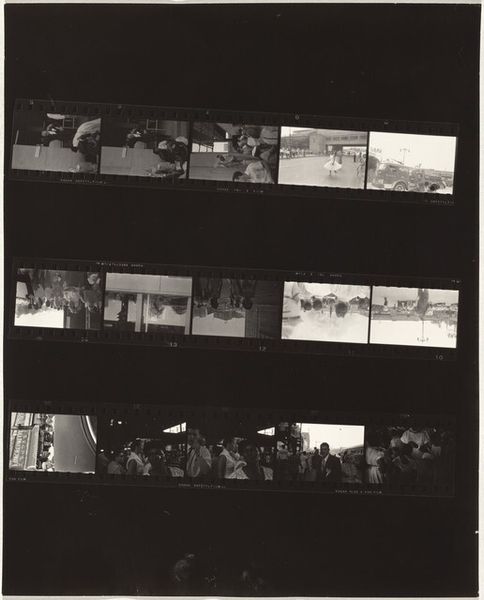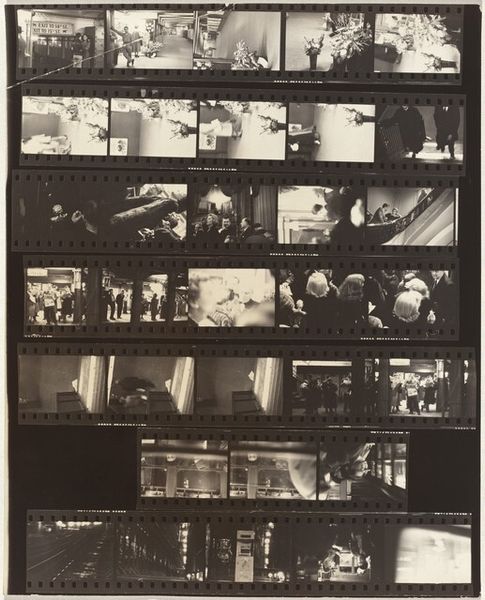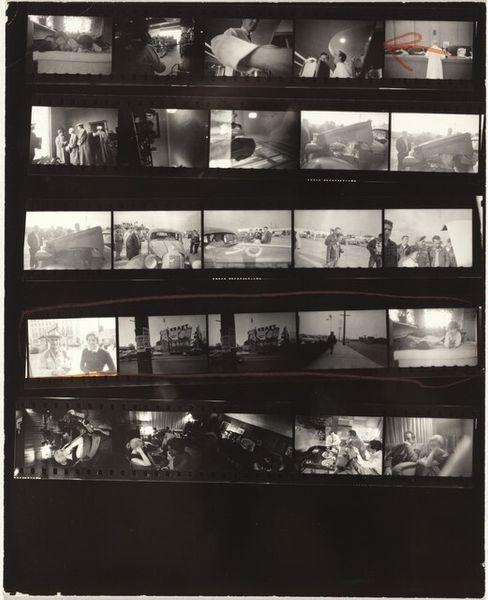
Guggenheim 328--Port Gibson, Mississippi and Baton Rouge, Louisiana 1955
0:00
0:00
Dimensions: overall: 25.3 x 20.4 cm (9 15/16 x 8 1/16 in.)
Copyright: National Gallery of Art: CC0 1.0
Editor: This gelatin silver print, "Guggenheim 328--Port Gibson, Mississippi and Baton Rouge, Louisiana" by Robert Frank, was made in 1955. Seeing the filmstrip makes me feel like I’m looking at raw, unedited memories. It feels so unfiltered and immediate. What strikes you most about this work? Curator: What I find particularly compelling about Frank's work is how he captured a sense of unease and social tension simmering beneath the surface of 1950s America. This piece presents a visual record, all within the confines of a single filmstrip. What social commentary do you think Frank is offering by juxtaposing images from Mississippi and Louisiana? Editor: That's a good point, I hadn’t thought of the arrangement itself as being part of the message. The images feel…everyday. Are we meant to read the ordinary as a statement in itself? Curator: Precisely. The “ordinariness” you observe is a deliberate choice that challenges the romanticized images of the time. By focusing on the mundane aspects of life, Frank reveals a stark contrast between the idealized image and lived experience, particularly for marginalized communities. It’s crucial to think about the racial segregation of the South at this time. How do these images contribute to a dialogue about race and power in the United States? Editor: I guess seeing children, or just people in the street, really personalizes it. I’m used to thinking about historical events as big concepts. Seeing these everyday scenes connects those ideas to the individual. Curator: And it's precisely this personal connection that makes Frank’s work so enduring. It invites us to critically examine the narratives we tell ourselves about our history and challenges us to consider whose stories are being left out. What does this piece suggest about the power of photography as a tool for social commentary? Editor: This makes me rethink the power that images hold, to make you question perspectives. I never thought of photography as such an important tool of change. Curator: Absolutely, and in recognizing that power, we can all become more conscious viewers.
Comments
No comments
Be the first to comment and join the conversation on the ultimate creative platform.
